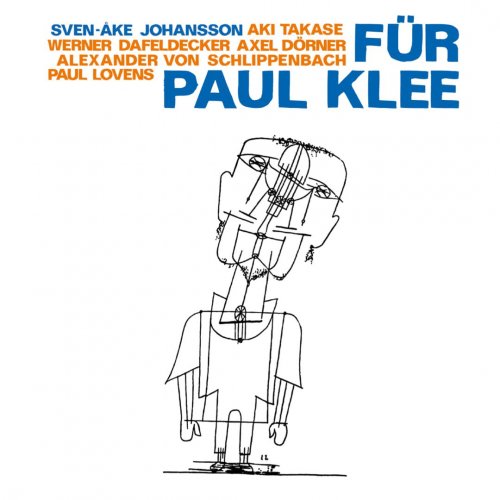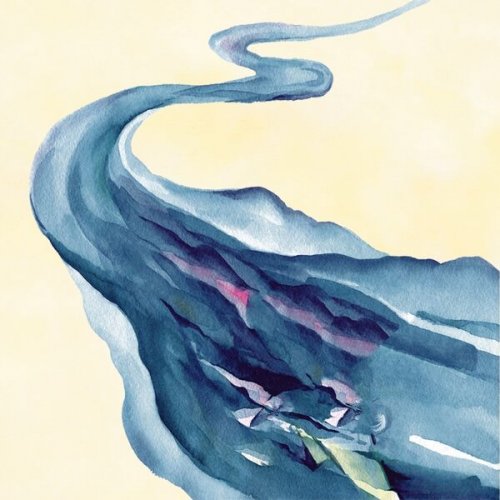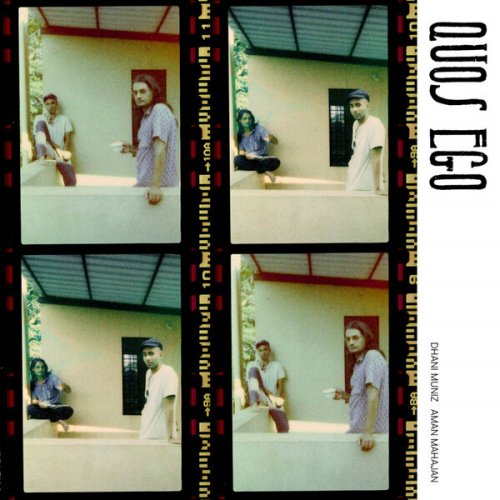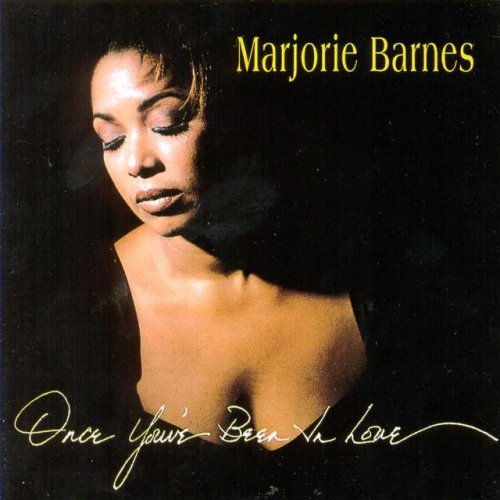Sven-Åke Johansson - Für Paul Klee (2012)

Artist: Sven-Åke Johansson
Title: Für Paul Klee
Year Of Release: 2012
Label: Jazzwerkstatt
Genre: Free Jazz, Contemporary Jazz, Free Improvisation
Quality: FLAC (tracks)
Total Time: 57:45
Total Size: 284 MB
WebSite: Album Preview
Tracklist:Title: Für Paul Klee
Year Of Release: 2012
Label: Jazzwerkstatt
Genre: Free Jazz, Contemporary Jazz, Free Improvisation
Quality: FLAC (tracks)
Total Time: 57:45
Total Size: 284 MB
WebSite: Album Preview
1. In Einem Zimmer Gefangen (04:30)
2. Schälkchen Auf Meinen Lippen (04:15)
3. Ich Muss Blass Sein (03:34)
4. Sprache Ohne Vernunft / Ein Gedicht Mit Den Reimen / Epigramme Mit Den Reimen (08:07)
5. Eine Satire Auf Die Kraftmeierei / In Solchem Zustand Gibt / Gefastet (04:56)
6. Satirisches Opus / Auf Dürre Finger Wird Ein Tuch Gespannt / Beim Anblick Eines Baumes (05:32)
7. Bin Ich Gott? (03:52)
8. Wahre Ankedoten (02:05)
9. Der Mond / Handlung Sei Ausserordentlich / Reduktion! (07:43)
10. Die Grossen Tiere Trauern Am Tisch (01:57)
11. Die Genesis Als Formale Bewegung Ist Das Wesentliche / Formbildung (07:35)
12. Töne Aus Der Ferne (02:36)
13. Romantische Attacken? (01:03)
That Paul Klee did not become one of the great composers of the twentieth century is due in large part to an adolescent impulse that made him oppose his parents wishes when he was eighteen. He went to Munich to study design and art and not music. But that decision was not enough to eliminate music from his life. On the contrary, it remained an important inspiration for him. Many of his pictures can be traced back directly to a musical background or an acoustic impression. What, though, was Klee's relationship to poetry and language? Much has been made of the ingenious titles with which he added additional layers of meaning to his pictures. But Klee also flirted with the art of poetry, and his journal entries around the turn of the century often mention the option of becoming a writer. Klee wrote poetry virtually throughout his life, but always kept the existence of these texts a secret. The poems, which were published posthumously by Paul Klee's son, were written down in various journal entries and a small blue exercise book, which contained both lyrical fragments and complete, revised poems and which was only found after Klee's death in 1940. For Sven-Åke Johansson, the capricious and mercurial character of Klee's texts is not a flaw, but a quality in its own right. His thirteen settings capture precisely this quality of the texts one could almost say that the relationship between words and music manifests itself in these qualities. What Johansson has done is not so much to set Klee's poems to music as to enrich them with music. One crucial factor in Johansson's settings of these texts is that he did not have to invent a new language of sound, but that he captures the essence of the texts with his musical tools acquired over a period of decades. And of course the lion's share of the expressive possibilities used in these settings goes to free jazz and free improvisation, because it is here that the musicians in the ensemble can explore their affinities to the full.
![Bill Champlin - Through It All (1994) [Japanese Edition] Bill Champlin - Through It All (1994) [Japanese Edition]](https://www.dibpic.com/uploads/posts/2026-02/1771699229_ff.jpg)





![WILLOW - petal rock black (2026) [Hi-Res] WILLOW - petal rock black (2026) [Hi-Res]](https://www.dibpic.com/uploads/posts/2026-02/1771525134_cover.jpg)
![Susie Philipsen - Sunday Kissing Club (2026) [Hi-Res] Susie Philipsen - Sunday Kissing Club (2026) [Hi-Res]](https://www.dibpic.com/uploads/posts/2026-02/1771738386_500x500.jpg)
![Anna Kolchina - Reach for Tomorrow (2026) [Hi-Res] Anna Kolchina - Reach for Tomorrow (2026) [Hi-Res]](https://img.israbox.com/img/2026-02/19/quc4em3qn6fgke1rwewkbdxg5.jpg)